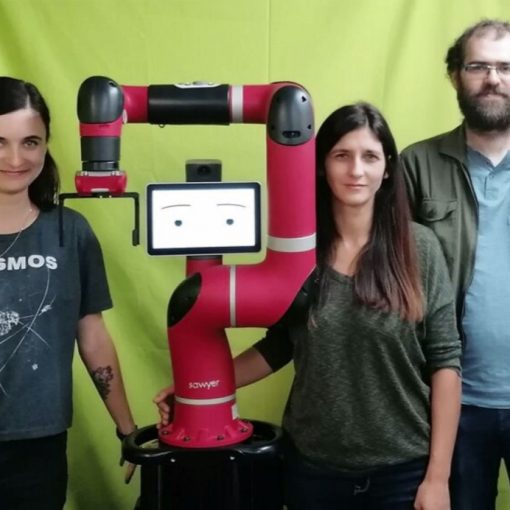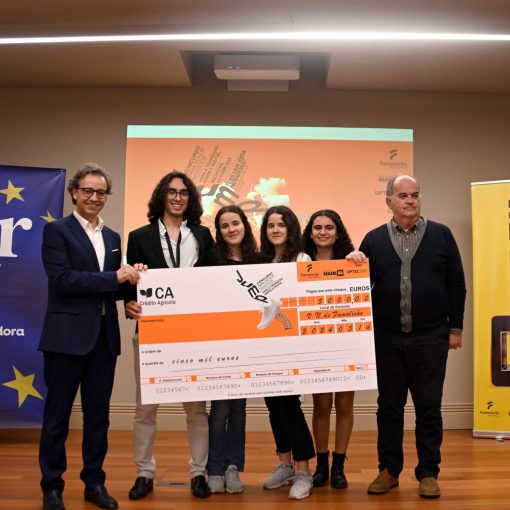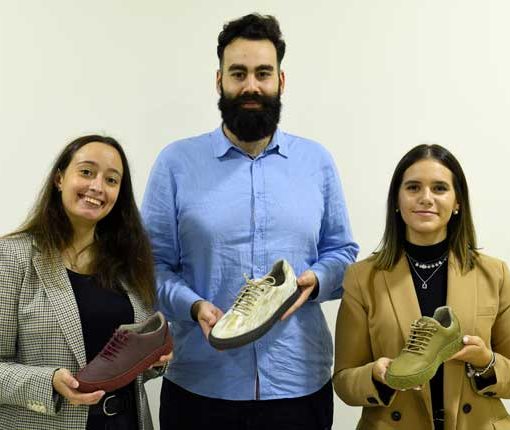120M€ project involves the University of Minho and 15 partners
The Lusitano Project was visited by the Prime Minister António Costa on January 13, at Riopele‘s facilities in Famalicão, as part of the PRR Route that is to know in loco three of the Mobilizing Agendas for Business Innovation already contracted under Component 5 of the PRR, Capitalization and Business Innovation.
The purpose of the Prime Minister’s visit is to learn the status of the implementation of this project, which is part of the Mobilizing Agenda for Business Innovation of the Portuguese Textile and Clothing Industry, led by Nau Verde, and which aims to accelerate the structural transformation of the national ITV through research and development of new solutions based on natural and/or recycled fibers, in the production of recycled/natural yarn, but also in the search for energy and resource management solutions for the sector.
“I believe that all applications with merit should be supported. This is the most disruptive measure of the RRP to change the productive profile of the country, an absolutely transformative project that can leverage all the best that is done in the country,” said the Minister of Economy, António Costa Silva, at the presentation of the three innovative projects submitted to the RRP under the mobilizing agendas, in which the Lusitano Project is included. In the opinion of the Minister of Economy and Sea, “the bet on the approval of the RRP mobilizing agendas may change the country’s productive profile, based on technological innovation and not on low wages”.
The Lusitano project counts with the participation of Twintex – Indústria de Confeções, S.A., Paulo de Oliveira, S.A., RIOPELE – Têxteis, S.A., Calvelex – Indústria De Confeções, S.A., Polopique – Comércio e Indústria de Confeções, S.A., Polopique – Acabamentos Têxteis, S.A., Polopique II – TECIDOS, S.A., Vanguarda – Soluções de Gestão e Organização Empresarial, LDA., Polywasser Technologies, LDA, Universidade da Beira Interior, Universidade do Minho (through 2C2T – Centre for Textile Science and Technology), Instituto Superior Técnico, Associação Fibrenamics – Institute for Innovation in Fiber and Composite Materials, INESC Microsistemas e Nanotecnologias (INESC MN), CENIT – Associative Center for Textile Intelligence, FF – Fábrica do Futuro da Moda e do Design Association, and Ventiláqua, S.A..
The innovation ecosystem of the School of Engineering of UMinho has a relevant impact on this project, through the participation of 2C2T – Center for Textile Science and Technology and the Fibrenamics Association – Institute for Innovation in Fibrous Materials and Composites, whose researchers will be present in this visit tomorrow to Riopele, along with the President of the School of Engineering, Professor Pedro Arezes.
Regarding the participation of UMinho in this project, Raúl Fangueiro, researcher from 2C2T – Center for Textile Science and Technology, vice-president of the School of Engineering of UMinho, and president of the Fibrenamics Association – Institute for Innovation in Fibrous and Composite Materials says that “the team from the University of Minho is involved in the development of sustainable textile solutions, including yarns, fabrics and clothing, based on natural fibers and recycled fibers from end-of-life clothing. Our team has developed over the past years advanced knowledge in these areas, being internationally recognized for scientific and technological advances that have been achieved, especially in the field of emerging natural fibers, including fibers from banana, pineapple, conteira, among others”. In his opinion it is, therefore, “an excellent opportunity to transfer this knowledge to the national industry, ensuring its valorization through the creation of added value, also contributing to the replacement of textiles with more negative environmental impact.
The RRP Roadmap will take place every week, with several initiatives, extending throughout the first months of 2023 and traveling throughout the country to verify, on the ground, the implementation of projects already underway with the Recovery and Resilience Plan funds: from housing to health, from social responses to business support, from culture to sustainable mobility, from forests to digitalization, among others.



